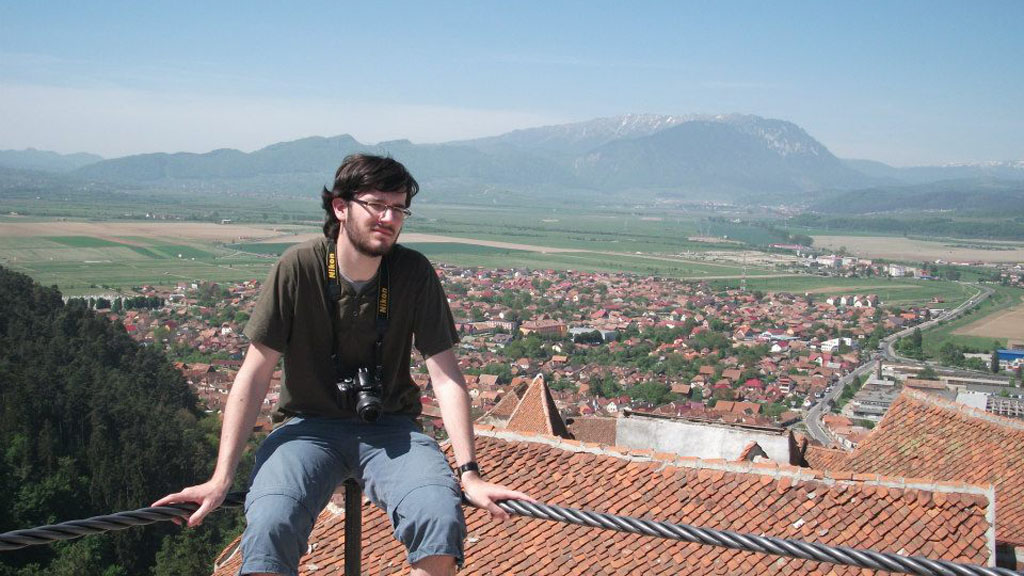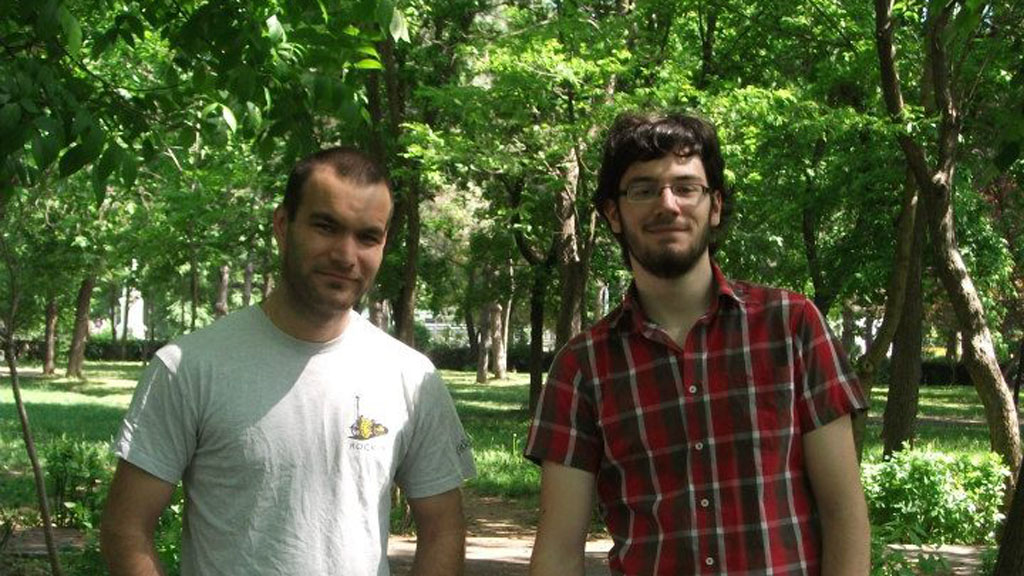Romanian migration – the other way
Tens of thousands of Romanians are predicted to come to the UK in the next few years. Channel 4 News talks to one young Briton who has gone the other way.

Great summers, cheap rent and a good standard of living – a couple of the reasons why Johnny Masefield, 22, from Surrey and Northern Ireland has chosen to make a life in the Romanian capital Bucharest.
It was a relationship – not immigration laws – that took Mr Masefield out to Romania, but now he’s there, he’s staying put.
“The original reason for me out to Romania is perhaps a bit of a cheesy one,” Mr Masefield says. “I came here in search of love in that I’d met my girlfriend while I was at university – and once I graduated, I didn’t have anything tying me down to the UK. My girlfriend was set up here with a very good career and so I made the decision to come out here.”
Mr Masefield went out with almost no knowledge of Romania – or the language – and was unemployed for a year, but two years on has set himself up with a graduate job at a Romanian outlet of a large US corporation and a place with his girlfriend in Bucharest.
As of 1 January 2014, there are no limits on the number of Romanians or Bulgarians allowed to come to the UK to look for work, though there have been restrictions put on the benefits they can receive over here.
Critics predict a huge influx of migrant workers, and the government has refused to release estimates of how many people from the two countries are expected to make their way to Britain. But there was no immediate sign of a wave of new arrivals when gates opened on January 1st and MP Keith Vaz and lots of television cameras awaited the arrival of the first flight from Romania to London.
Bucharest v London
Mr Masefield won’t be making that journey any time soon. Though he and his partner Lisa originally intended to move back to Britain, they’ve both decided to settle in Romania.
“For a while, we were looking, but since the first year, we’ve stopped – we’re very happy here in Romania, we both enjoy the life that we live here.”
What keeps them there? Summers with consistent daily highs of 30 degrees Celsius – and a good standard of living help. Mr Masefield contrasts how he does on a starter graduate salary in Bucharest with how he would be doing in London.
“For the country we earn quite a decent wage compared to the national average – even for me – and I came here fresh out of university with no experience.
If I was in London earning a standard graduate salary a lot of my money would be going on rent
“In terms of a graduate job here compared to the UK – while you’re earning a lot less if you convert the actual amount into pounds, your money goes a lot further. And so life is in some ways more comfortable here. If I was in London earning a standard graduate salary a lot of my money would be going on rent, and just getting by, I wouldn’t have that much left over for whatever I want to do.
“Here the cost of living is considerably lower, and that’s a large factor in why we enjoy life out here.”
And, in Bucharest at least, there are graduate jobs. Corporations are interested in young people with language skills and the relatively cheap set up and salary costs Bucharest offers.
Romania’s post Communism go-getters

As for the recent stories about Romanians in the British media – Mr Masefield says that the begging and benefit stereotypes are far wide of the mark:
“The majority of people that I talk to – friends from work, young professionals – don’t fit that stereotype at all. They are smart people, the education system here is good, there are universities you can go to and lots of modern young people who want to make the most of their lives.”
He admits that he only knows life in the capital, but says that Romania’s recent release from Communism has given its people a go-getting, enterprising attitude.
“There’s a lot of go-getting,” he says. “I think that comes out of being an ex-Communist country. There’s a desire here to have that lifestyle that was previously denied under Communism, when it was harder to actually own belongings. One clear thing here is a love of cars, they want something that belongs to them and that they can take pride in.”
There’s a lot of go-getting. I think that comes out of being an ex-Communist country
“And that’s reflected in the culture other ways. People want to strive for the best.”
Mr Masefield doesn’t know anyone planning to move to the UK as result of the legal changes. And certainly not for the benefits: “Benefit migration is not something that I have ever heard talked about.”
Cost of living: Romania vs UK
Average yearly salary
UK: £26,500
Romania: £4,485
Average rent
London: £1,463 (all properties)
Bucharest: £324 a month (3-bed property)
Monthly travel pass
London: £116.80
Bucharest: £9.22
Loaf of bread
UK: £1.30
Romania: £0.37
source: Numbeo, Romania Insider
‘Offended’
But he does know several people who have already moved to the UK, as before the migration cap lifted, up to 25,000 low-skilled Romanians were allowed work permits for the UK. One is cleaning for a living.
“I know a neighbour who moved to UK with his girlfriend who is a student. They moved a year ago and he is earning money by cleaning. He would rather do this than claim benefits,” says Mr Masefield.
“There is a feeling of pride in ‘making it’ and having your own money or being your own person which contrasts to the UK media’s image of wanting simply to claim benefits and live off the state.”
According to Mr Masefield, Romanians have been offended – and baffled – by headlines such as ‘Next stop Britain on this benefits bonanza express from Romania‘ or ‘I’m from Romania, I came to Britain for the hospital‘ or even ‘New migrants could hypothetically cost the UK billions‘.
“Why are the English making such a big fuss over this? It’s like they were expecting all 20 million Romanians to just turn up on 1 January, with their hands held out waiting to be given some money.”
‘They come back with nightmare stories about Newcastle’
Stereotypes about Romanians are rife, but Romanians have their own stereotypes about Britain – both negative and positive.
And no it’s not our go-getting attitude that stands out. Mr Masefield says that the British tendency to binge-drink has made a stronger impression on Romanian visitors.
“Everyone who goes to England comes back with stories. People from work tend to travel to Newcastle there because there’s an office there. Everyone who goes comes back with nightmare stories of the town – how many drunken women they saw on hen nights, falling out of taxis at 5am in the morning. Everyone who has gone has told me one of those stories and there is quite a bad opinion of British youth is some ways.”
He mentions a short feature about drunk British people falling down the escalators that was recently aired on a Romanian TV news station.
Still, there’s also a fondness for British culture in Romania.
“There’s still the old stereotype of Britain being a polite place, among some people there’s still a romanticised view of England.”
And Prince Charles is a surprising source of affection: “And there’s a bizarre respect for Prince Charles, who owns a lot of property here and comes over and visits. He does a lot of restorations of historical buildings in Transylvania.”